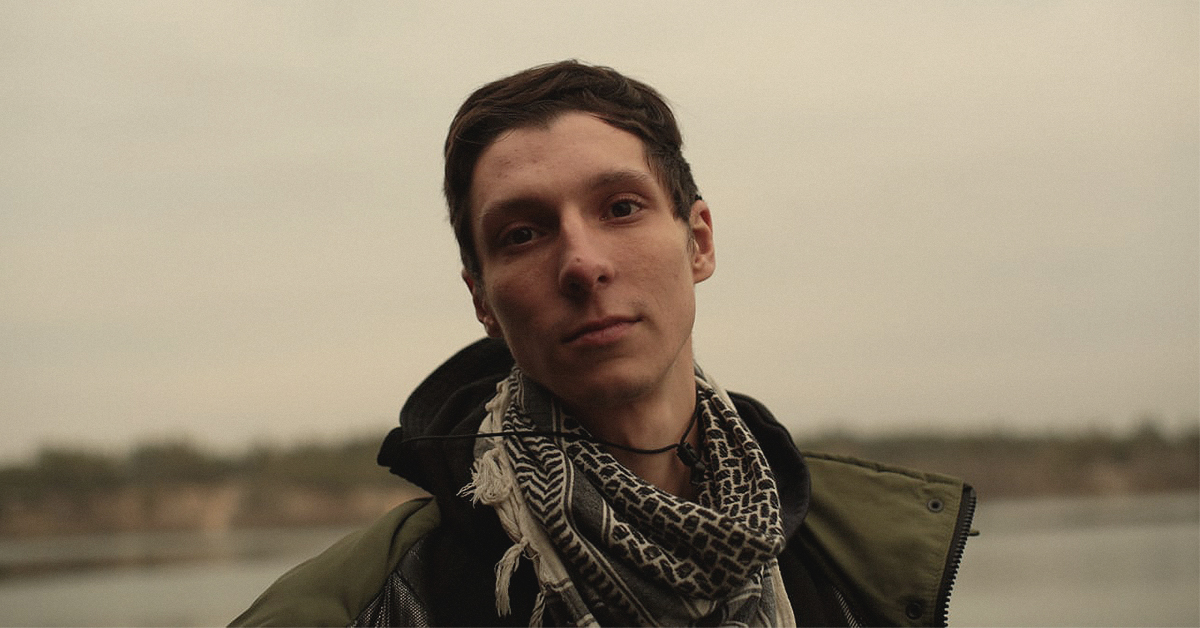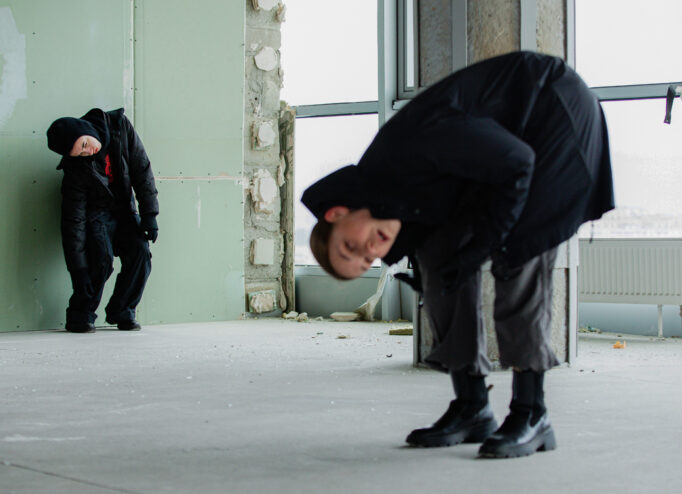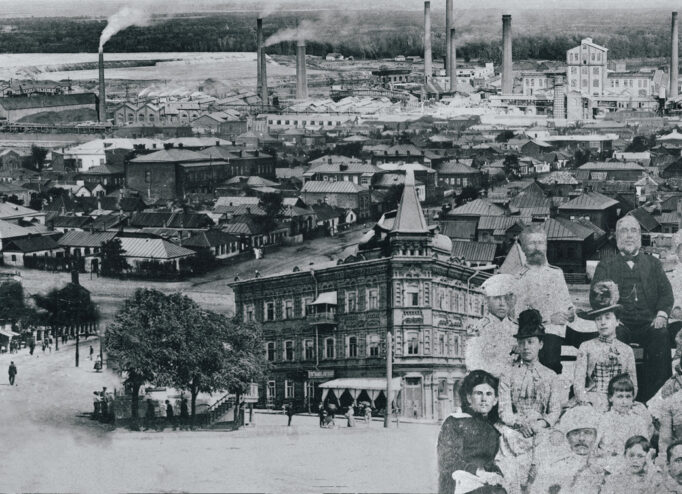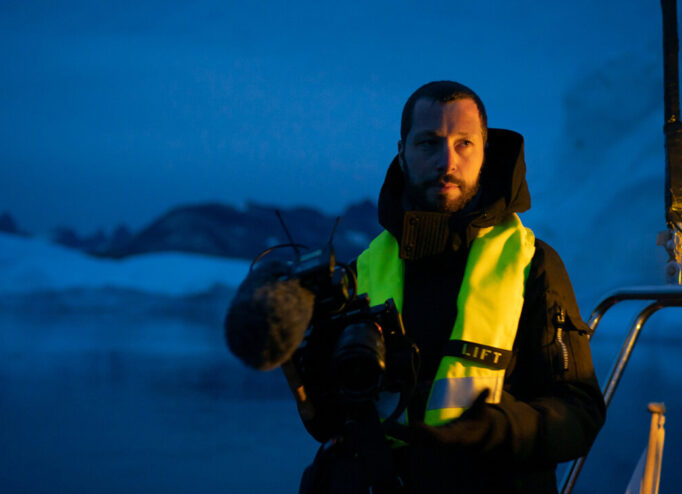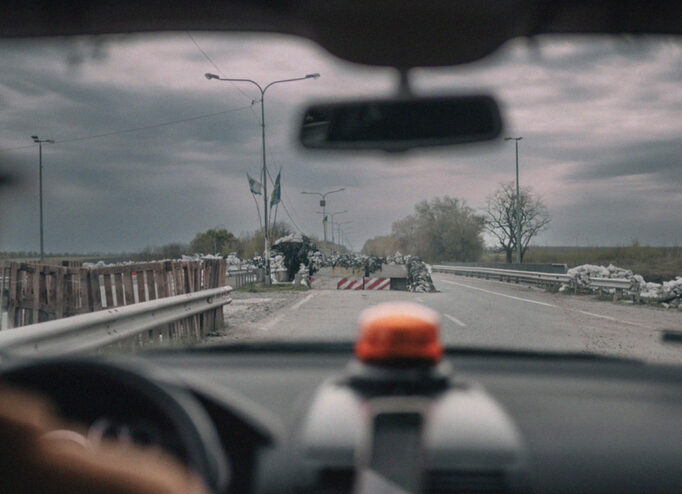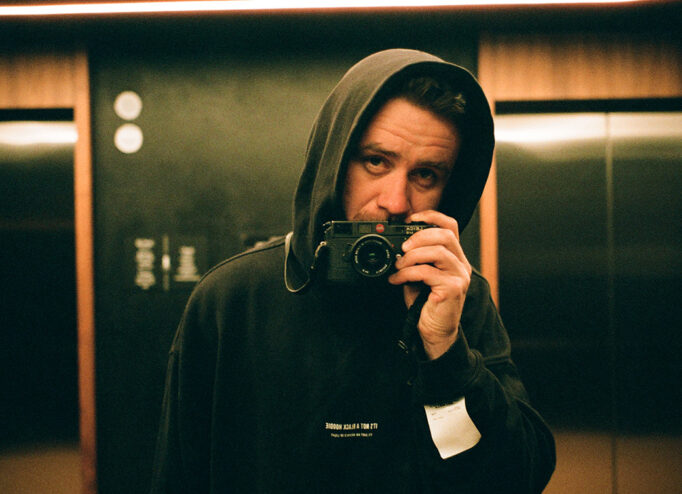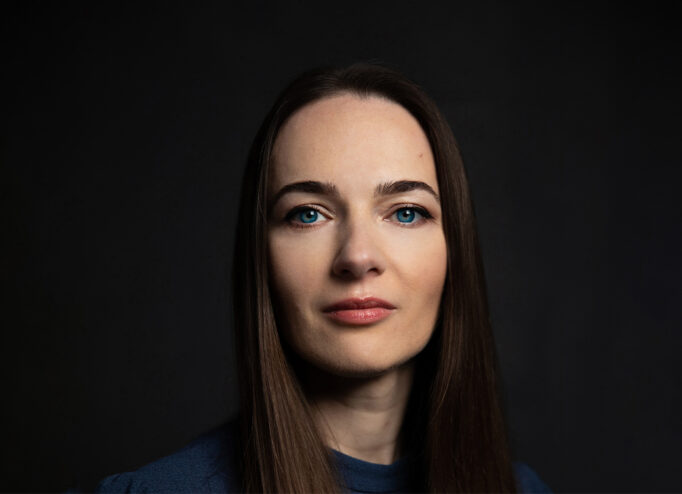The Ukrainian film «Butterfly Vision» was selected for the second most important competition of the Cannes Film Festival «Un Certain Regard». This is Maksym Nakonechnyi’s debut drama about an airborne scout, Lilia, who was raped in russian captivity during the war in eastern Ukraine. Upon her return home, she tries to continue living with this tragedy. Nakonechnyi directed the film with volunteers, doctors, and former captives in supporting roles, and the movie was made near the war zone.
We called the director to discuss «Butterfly Vision» and to find out why he decided to go to Cannes instead of boycotting because of russian cinema in the main competition, and what can make the world film screenings refuse russian product. And also about the advantages of non-professional actors, the willingness of directors to work with traumatic themes, one of the main problems of Ukrainian cinema, namely the naturalness of speech, and about Nakonechnyi’s participation in «The Cleverest» with Tina Kandelaki
Premiere in Cannes
— Congratulations on qualifying for the Cannes Film Festival, around which there are many counter-version thoughts ranging from the lack of a ban on russian cinema to the opening film Z by Michel Hazanavicius, whose title correlates with the symbolism of russian propaganda. (After recording the interview, the film title was changed at the request of the Ukrainian Institute. — Note. DTF Magazine) Will the film festival discredit itself with such decisions?
— I would not call it a conscious sabotage by the organizers. Many factors came together here and there are several reasons.
First of all, it is the insensitivity to detail and nuance, mixed with festival elitism. This is a widespread opinion, and for me it is the essence of the latest long-standing conflict of the cancel culture against old manipulative artists. One gets the impression that elite artists are allowed a little more. For them, the limits of ethics are more extended. Someone has widened them.
The second reason, and the main one, is that no matter how much we express our piety for the collective culture of the «russian world», there is a monetary component. russian companies have money, they have lobbyists, established connections. This is the case with Kirill Serebrennikov (his film «Tchaikovsky’s Wife» is in the main competition at the Cannes Film Festival. — Note from DTF Magazine). It can’t be a coincidence that he was just released from house arrest.
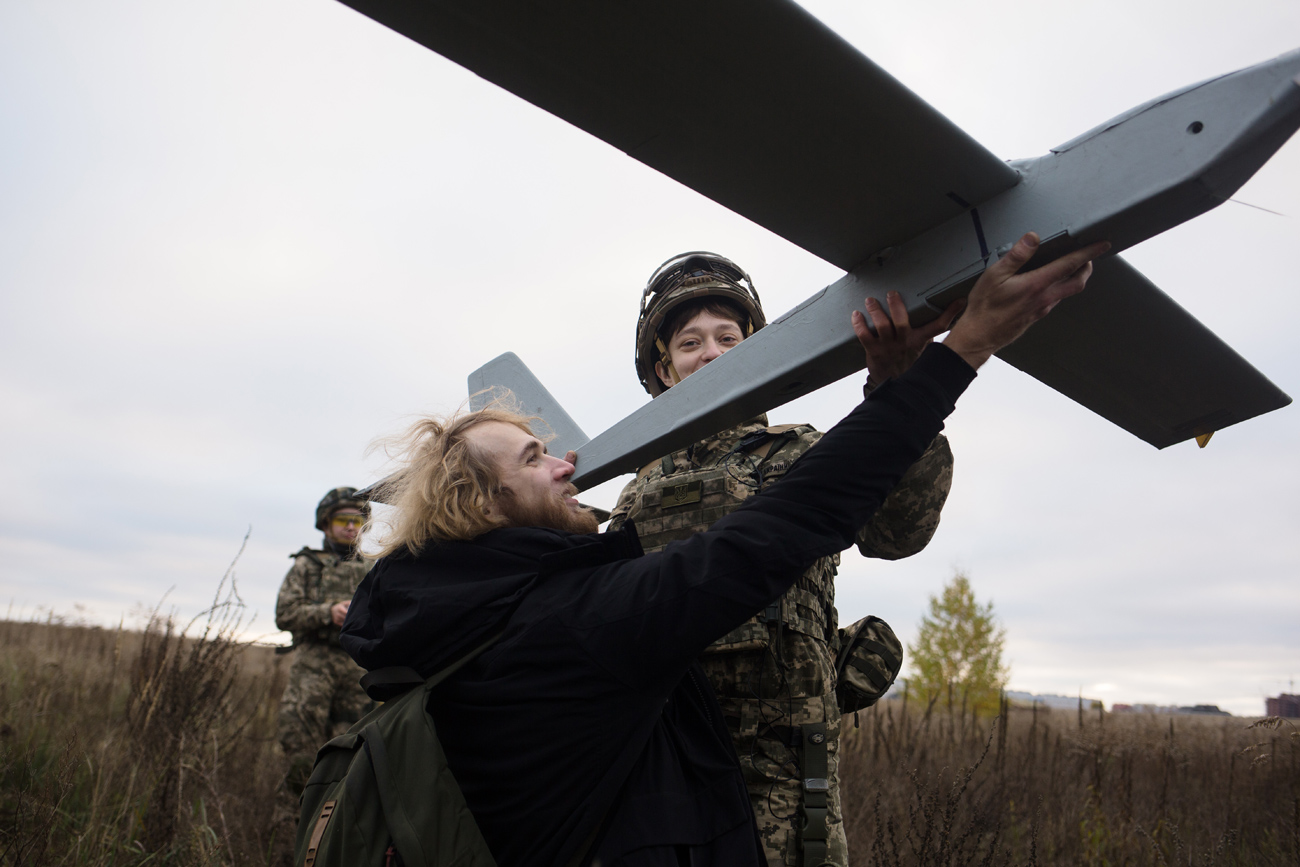
The long history is that the world expresses deep concern, but puts its eggs in the same basket. And here’s the third reason.
Cinema is the field of art where people get the most influence after the age of 50.
That’s when filmography appears, and it means a permanent passive income in the civilized world. Realization happens after the age of 50. Plus, it’s a meteoric rise or eating crumbs.
Even before the full-scale invasion, I was talking to Yelizaveta Smit (Ukrainian director of «School Number 3» and Solitude. — Note from DTF Magazine) that older artists often consciously or unconsciously, realizing their weakness and failure, hide from the challenges of the world and reality in irony. The phenomenon of the film Z was revealing because we [organizers of the Cannes Film Festival — Note from DTF Magazine] can’t do anything, so we’ll laugh it off so it’s not super direct and understandable and then we won’t offend anyone. I think that was the motivation. Added to the elitist ignorance was the context that the film would be an ironic update and therefore it was appropriate for everyone to laugh about it.
— What should be done to keep russian cinema out of major international film festivals?
— I don’t know exactly how such festivals work. Anyway, the program department has to like your film. And of course it’s not about direct bribes. It’s a complex system of relationships in which there are companies that take the films presented at the festival and sell them to TV or streaming services.
It’s a well-established system with producers, festivals, and distributors. These people have known each other for a long time. They have more than a dozen films in common. The Ukrainian Cultural Foundation called it a conflict of interest. De facto and de jure, no one pays anyone any money. They benefit from it. It’s easier for everyone to work with a film from a proven producer from whom five films were taken and all of them were at the same festival. The film has a shorter distance left which consists of these accomplishments.
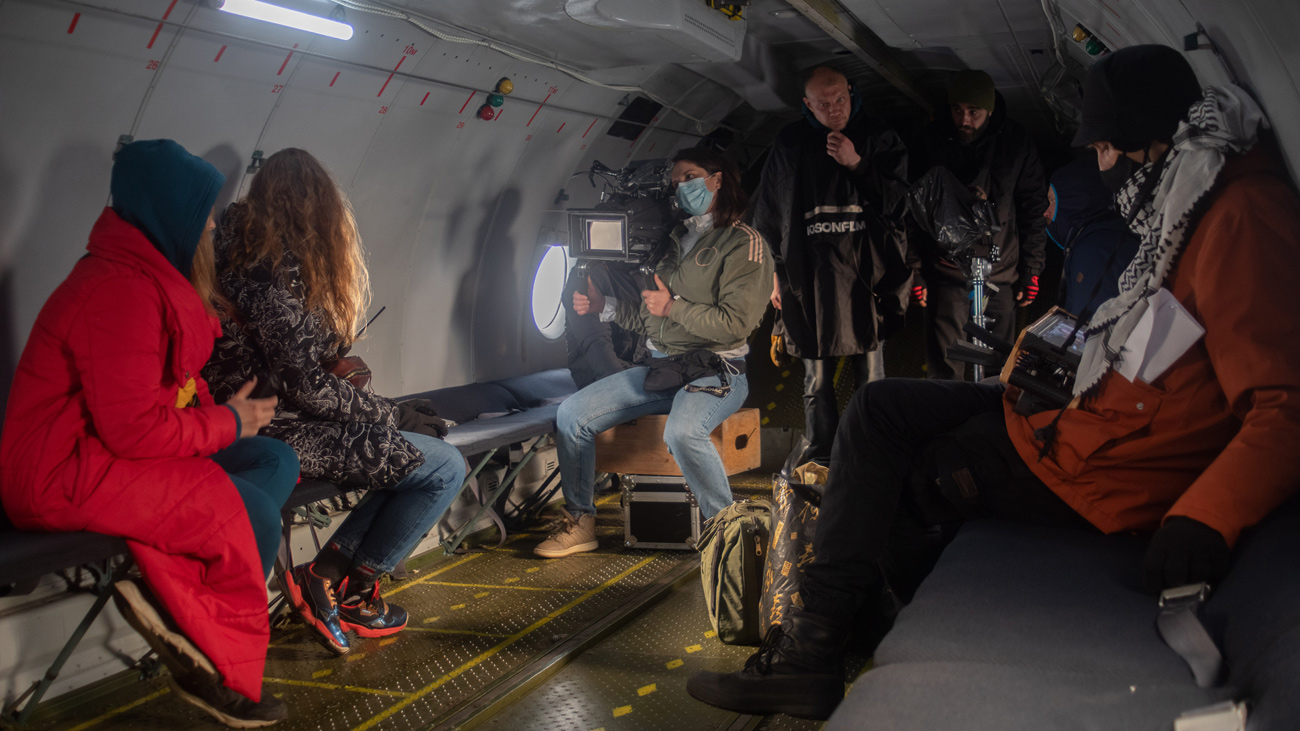
— We recently talked to Valentyn Vasyanovych. According to him, russian films will stop being shown at film festivals if their citizens are killed in these countries. What do you think about that?
— It is hard to say what should happen. Something depends or would depend on good russian artists who label themselves as oppositional. Right now the international boycott idea is not a one hundred percent success, and that is normal and expected. You have to aim big. You have to want to jump to the moon to jump one meter up.
The goal would be to make sure that every person who consumes russian art has a «This cultural product is a weapon for the extermination of a large number of people» disclaimer before he or she starts watching or listening to it.
What would have to happen for European cultural consumers to have this feeling? Would anything change if people there started dying from russian weapons? It’s hard to say, because we don’t know the level of their Stockholm syndrome. It would be good not to find out. No one wants russian troops to advance into Europe.
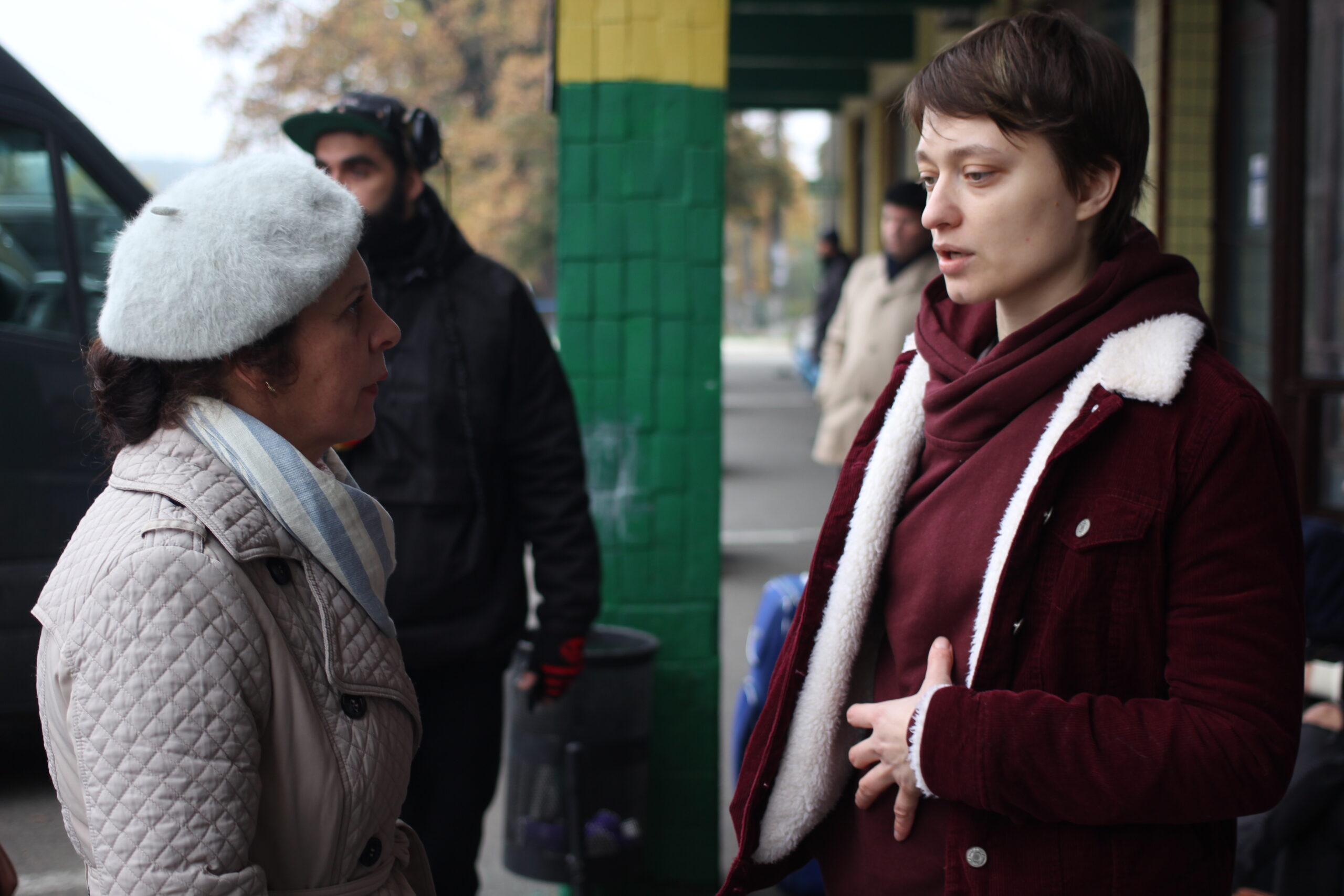
— There is an opinion that there are two positions if your film gets into a film festival with a russian film: you either have to withdraw your film or enter into a discussion directly at the festival. Which position do you take?
— There are things you don’t want to be a part of. You have to be honest and clear with yourself. It is important to act situationally and each time to assess which step will be more effective. Right now, you have to maintain normal well-being, emotional and moral balance, and self-respect. And the second thing is to evaluate the effectiveness of a step in specific circumstances.
— What position will you choose in Cannes? Are you preparing a political action?
— Our presence at the festival will already be an attitude that will be expressed in everything, namely in our speeches, in our communication with the media, in our actions, in our appearance. First and foremost, our statement is our film, so we want it to speak. Everything is clear in it, even though there are topics with a shaky basis.
I want to be super-aggressive, but I shouldn’t be. Unfortunately, our colleagues, who have not seen war for more than 70 years, have a shifting focus. Nor should we be depressed and take the position of victim.
We have to be balanced, accurate, not look for euphemisms, be uncompromising, and clearly articulate our position. We want to shift the focus of the international community from unhappy russian artists to Ukrainian artists who cannot create art and to Ukrainian society and identity that are under direct threat.
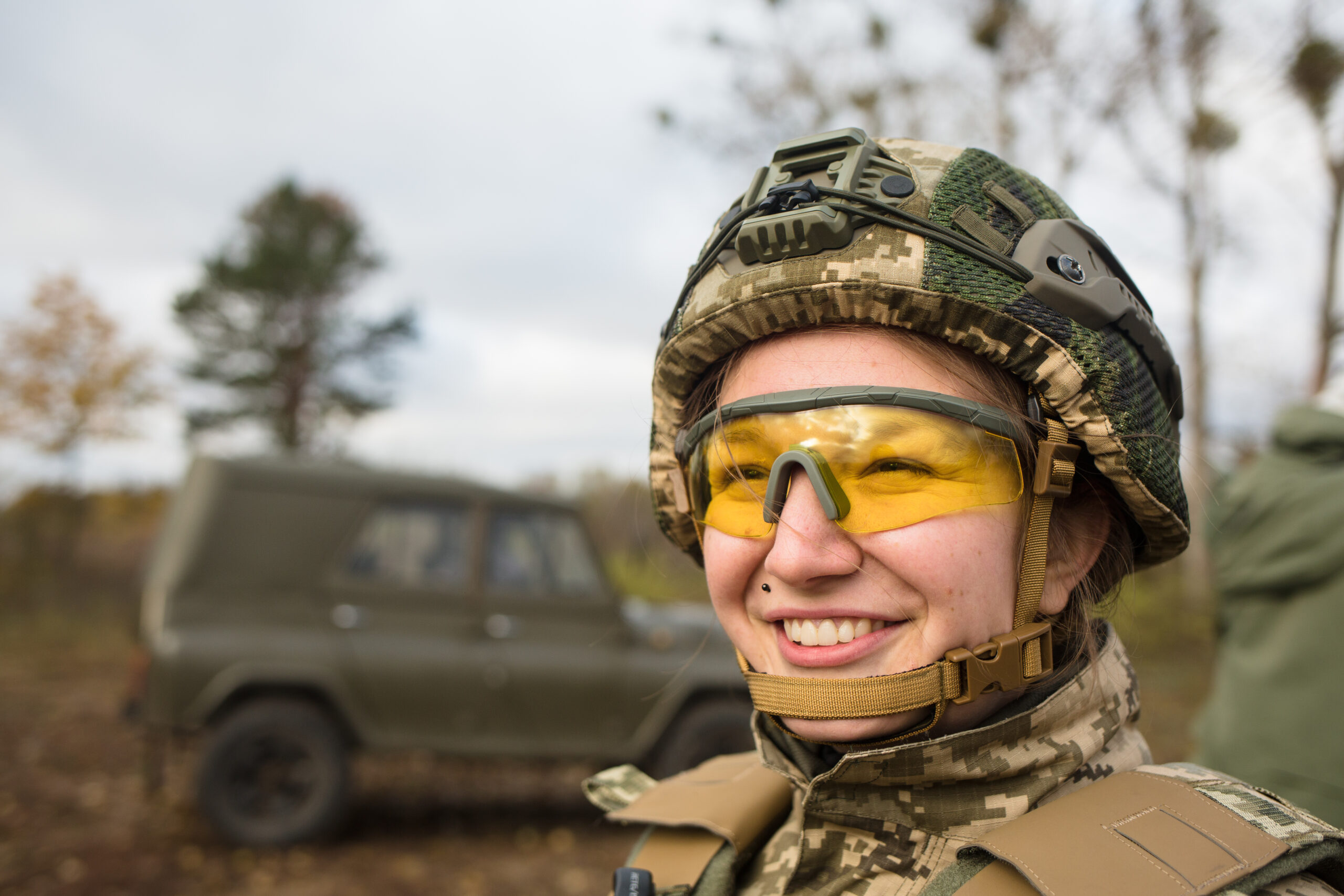
Participation in «The Cleverest»
— You produce, write scripts, work on editing, and even star in movies. There is even an episode with participation in «The Cleverest» in your biography.
— When I was in seventh grade, the head teacher came to our class and pointed to the honors students: «This one and this one are going to a casting call for “The Smartest”». It struck us, we came, but I failed the casting. Then they filmed the pilot of the TV show, and then they started a season with a casting for 12 shows. I saw it on TV and decided to try again.
I was 13 years old, in eighth grade. I called them myself and they took me in. There was a seasonal system with quarterfinals, semifinals, and superfinals. Those who made it to the semifinals stayed in the league and continued to play in the following seasons. It dragged on, and I took part in ten broadcasts, made it to the finals a few times, and won once.
It is very interesting to remember that Tina Kandelaki was the host of this action. If our moms had known that this woman would later become one of the engines of threatening their children’s lives, they would have dealt with it quickly. My mom wrote an angry comment to her on Facebook back in 2014: «How can that be? We trusted you with our children!»
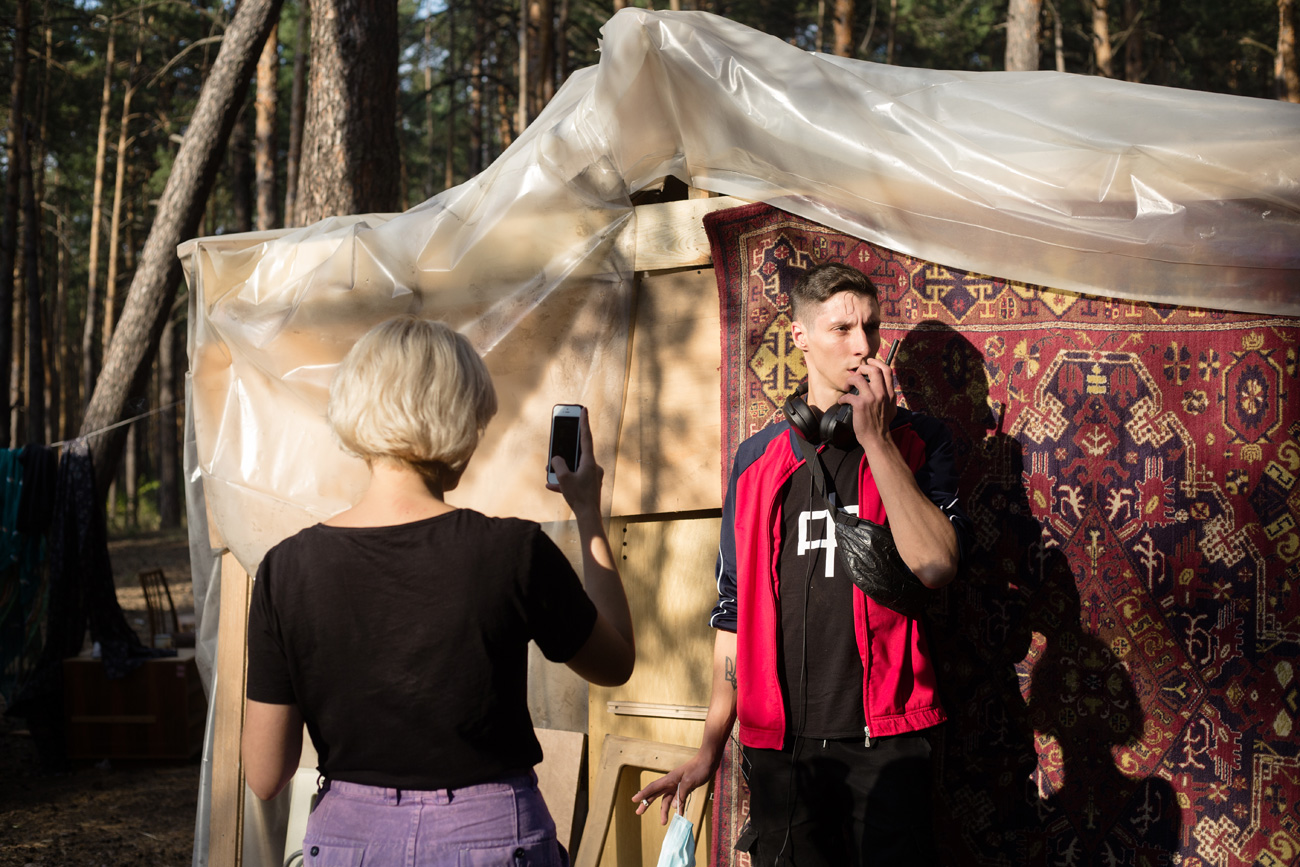
The idea, language and delicacy of «Butterfly Vision»
— How did the idea for «Butterfly Vision» come about? Is it based on a real event or is it a mixture of war stories?
— The idea came when I was editing «Invisible Battalion» [a social documentary project by three filmmakers about six Ukrainians fighting in eastern Ukraine — Note from DTF Magazine], specifically the part that was directed by Iryna Tsilyk. By the time I started working with her, I already knew and imagined all the turning points of the film, but I didn’t know how to get to them. Together with Ira, we pulled the film together, built the whole seamless process and filled the film with life, good secondary characters, and context. She helped me with the dialogues, too.
This is the case when the story itself comes to you, sits inside, and you see no other way but to give it life.
Then I wondered why such a story came to me. I see people like the main character, Lilia, with similar experiences. I see them as moral compasses, both for themselves and for society. That is why this film is a search for a reference point for a society traumatized by war.
It is a collective image. The story of the film is not based on real events, but is influenced by our reality.
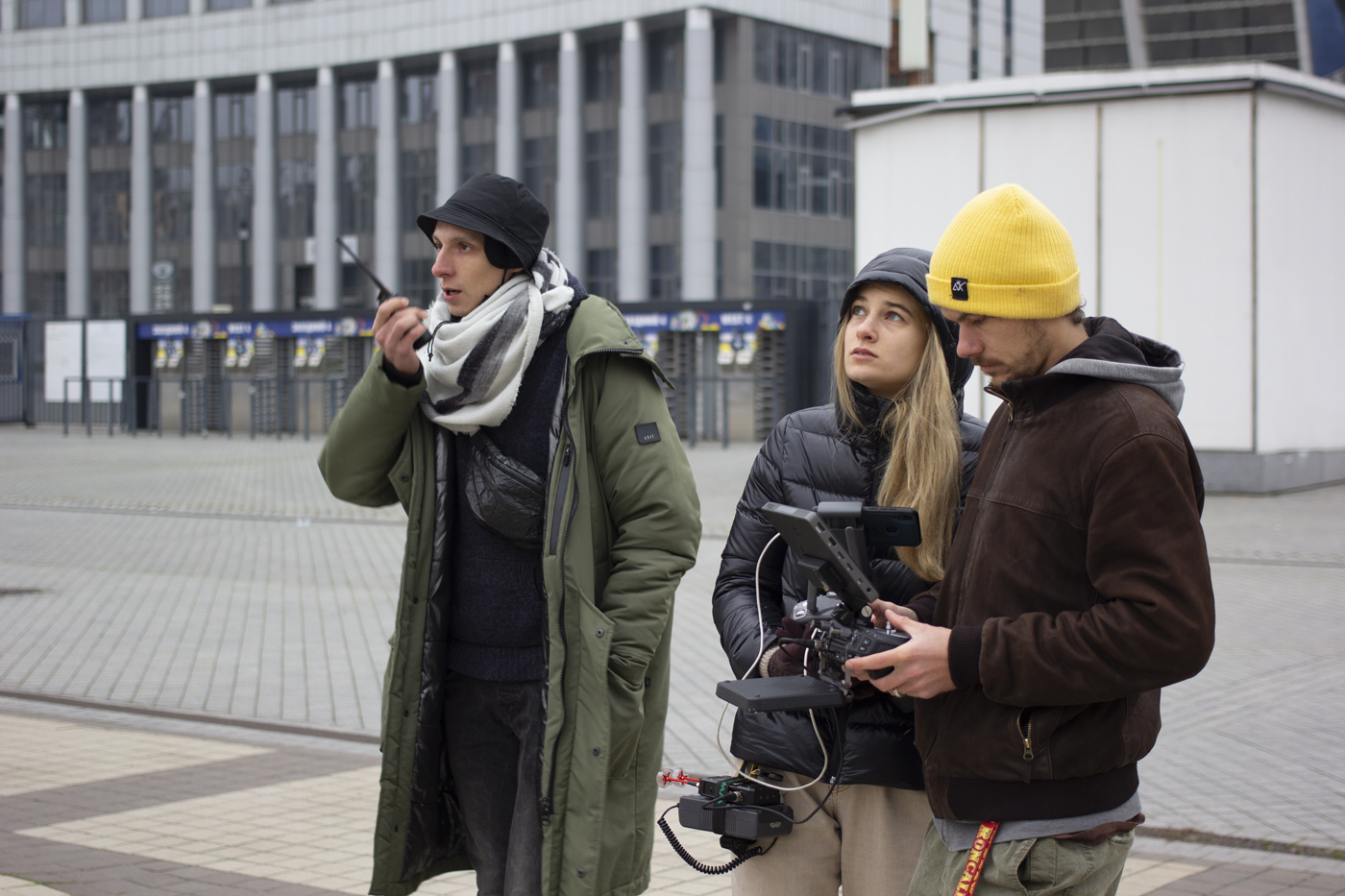
— The main character was raped in captivity in your film. We can only imagine such horror. But after the liberation of the Kyiv region, we learned that such things happened on an extraordinary scale. How did you react to the news about Bucha, Hostomel, etc?
— I reacted with horror and pain as empathically as possible. You can’t imagine what this trauma and act of violence is like. Our film is made about what was going on all eight years. It may not have been widespread, but the prisoners we talked to witnessed sexual violence. It’s to be expected that a full-scale russian invasion would take on proportions in all its horrific manifestations. And in this, too.
This is the archaic model of warfare: your cities and men must be killed, all women and men and children must be raped. This is aimed at, among other things, oppressing and destroying our identity so that we are afraid to be Ukrainians. That’s why we made this film.
— At first your debut film was called «Spas» and then it changed its name to «Butterfly Vision». Why?
— There are many factors. First, I wanted to strip the film of religious connotations. Not because of a negative attitude toward religion, but because they are superfluous in the film. «Spas» was a good working title, because it characterized everything that happens in the film as briefly as possible. But I wanted to express more what’s going on with the character, and «Butterfly Vision» is a capacious title because it reveals the character’s thoughts. She struggles to see her life. She also sees a little more as a result of, or in spite of, what happened to her.
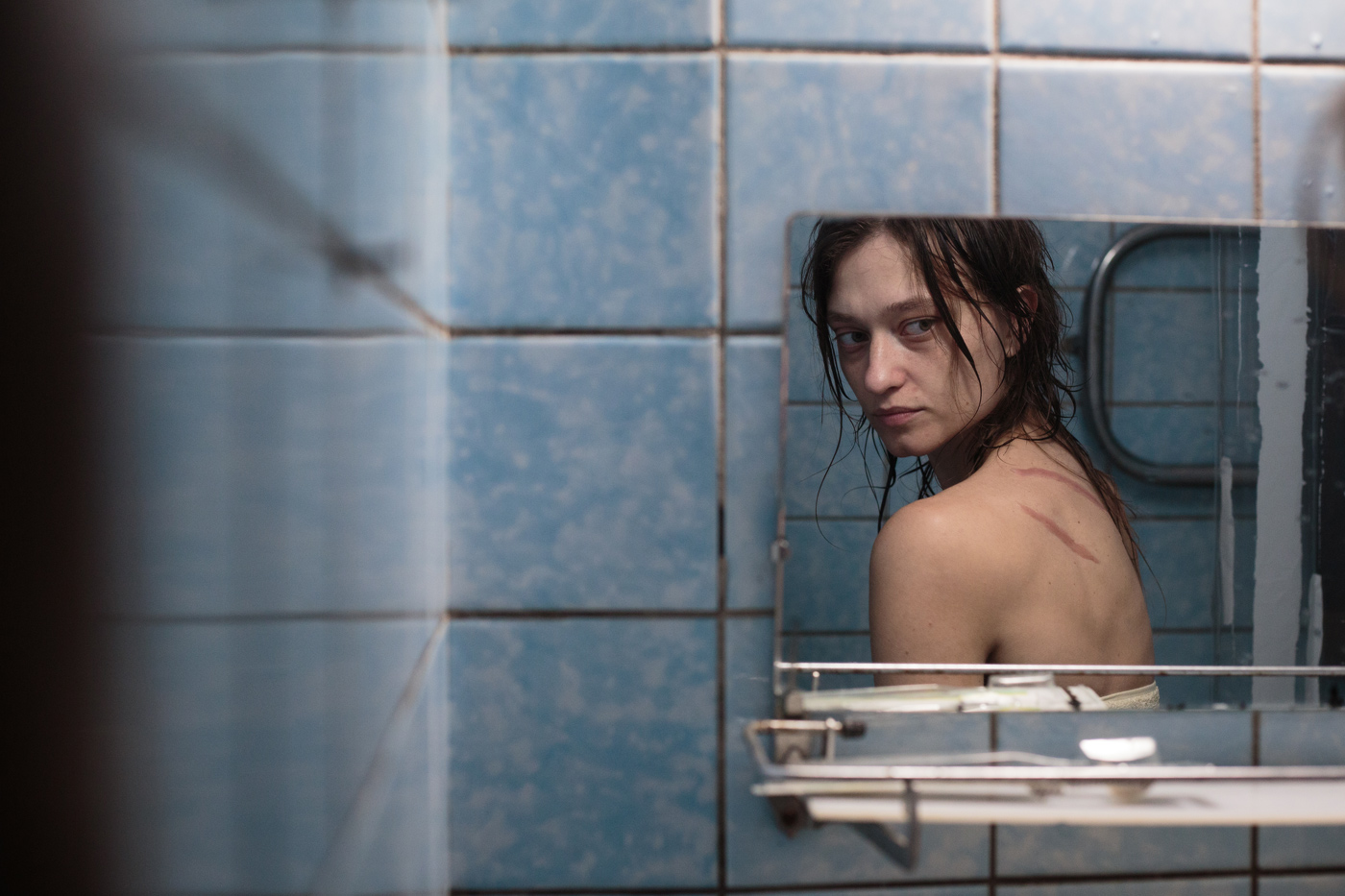
— There were recorded cases of rape of boys. Do you think the Ukrainian film industry and the audience are ready to comprehend such a terrible topic?
— Personally, as an artist, I’m not ready for that. It’s hard for me to say about others. I don’t know yet what I want to shoot about next. The war has a direct impact on my personality and what I do.
As for «Butterfly Vision», this fictional story came to me when I heard another one. So the cinematography will be ready when a powerful and accurate story emerges. It’s real, but the subject matter is very creepy, multi-layered and complex in all perspectives.
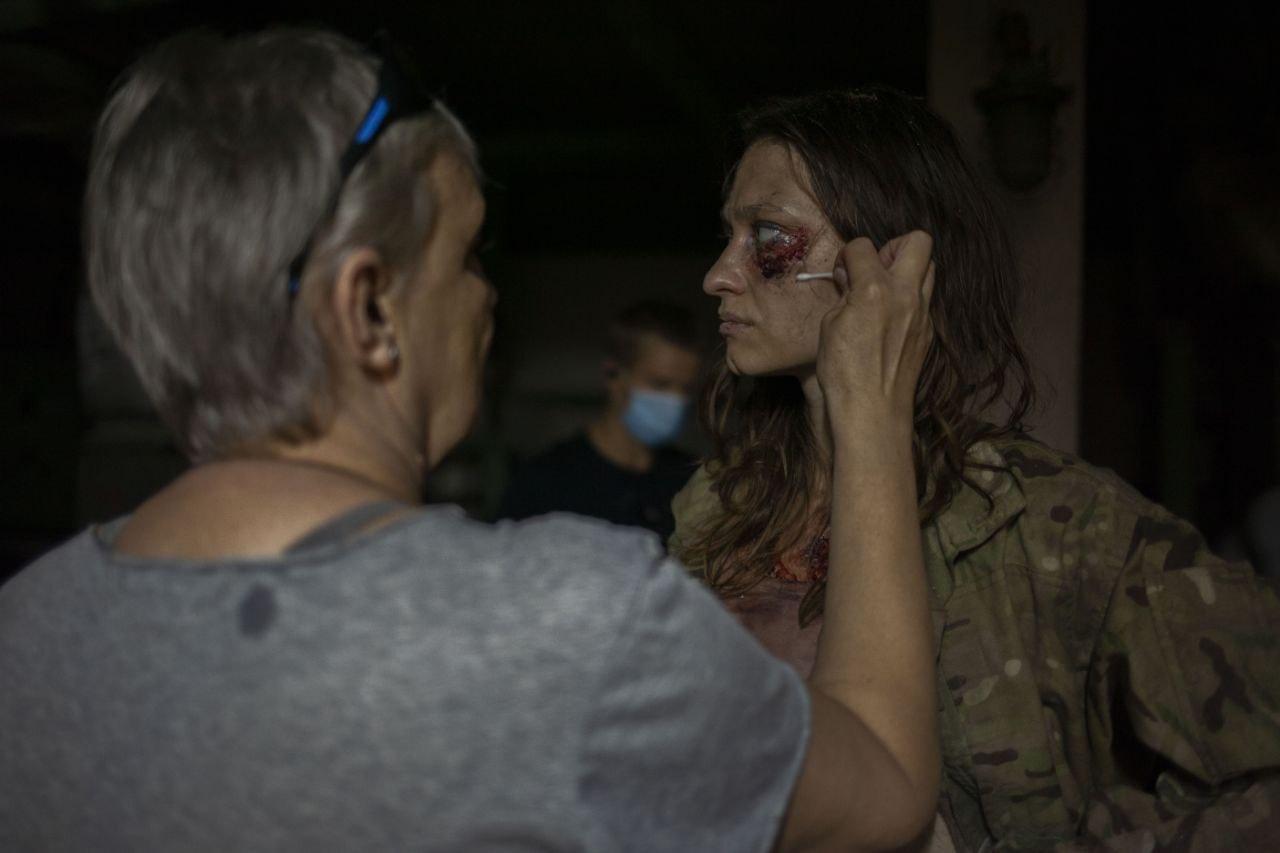
— Iryna Tsilyk helped you with the screenplay. But are you prepared that in Cannes it will only be regarded as a male gaze on the subject of rape of a woman, because the director is a man?
— Of course, I’m ready for that. I have not been in a similar situation. But during my research on the topic, people shared personal stories and perspectives with me, and I tried to make it a collective experience. All of the authors agreed to the opinions and perspectives I offered.
And I am willing to take responsibility for every frame of this film. I was conscious of every issue it touches.
— Ukrainian cinema is often played by non-professional actors. «Butterfly Vision» is no exception. Is this an attempt to get closer to reality or do we not have enough qualified actors?
— It’s individual for each actor and for each role, because in some ways it’s a lack of flexibility, sensitivity and involvement in different contexts in many actors. In some ways, on the contrary, some positions only require professional actors who will be responsible for the psychophysical apparatus and how to put it together afterwards. Some things require specific experience or texture.
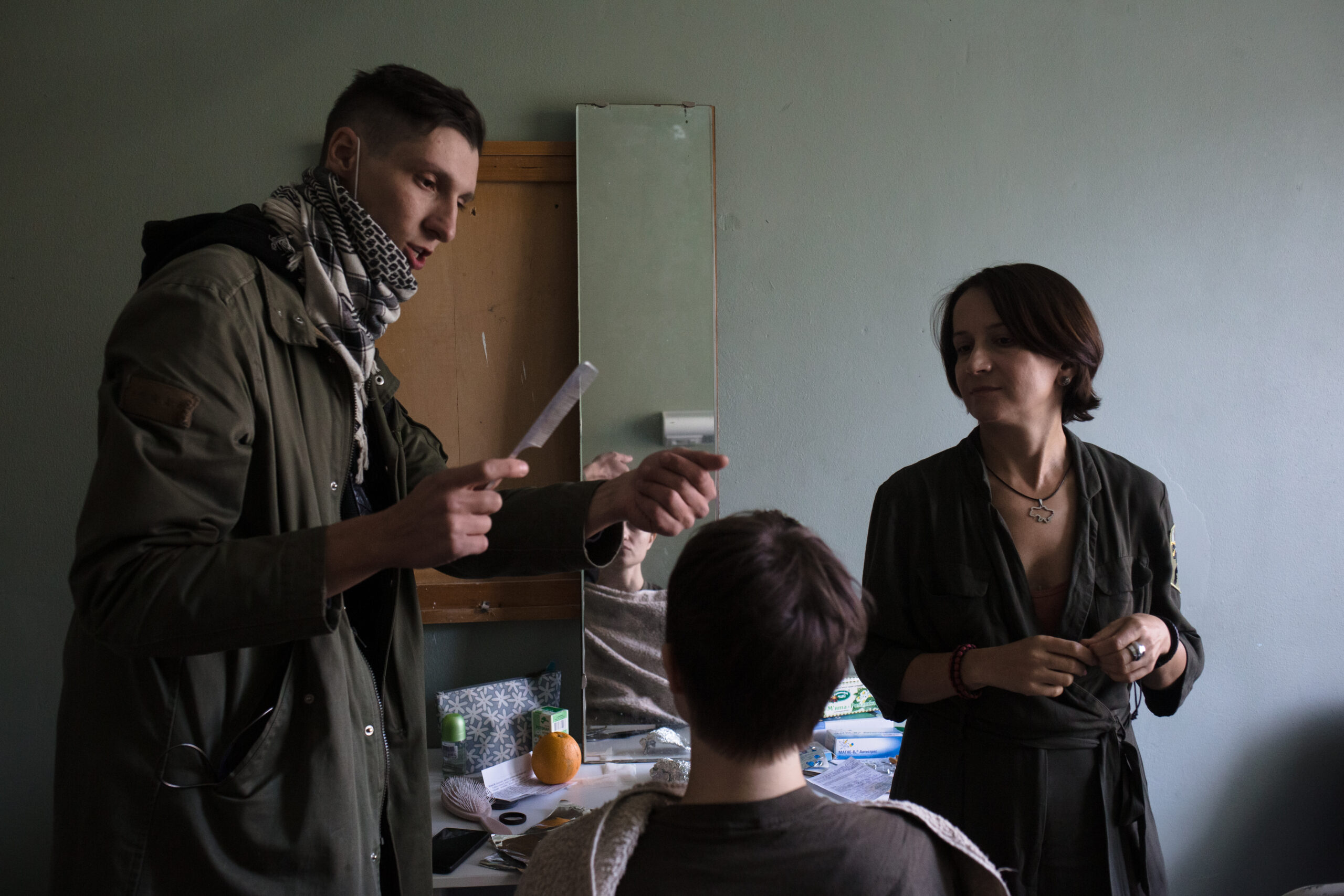
I had officer Myroslav Gai and he, above all, works as a professional actor. There was also director Natalka Vorozhbyt — shooting directors is the highest pleasure. This is a person who will offer everything herself, but with respect and maintaining subordination.
— Did Vorozhbyt interfere in the filming process not as an actress?
— Everyone was making corrections. That’s my lazy directing, that is, not to tell an actor everything from A to Z, but to show some cornerstone, character milestones and say: «Fill your own role with texture and understanding of the character».
— A frequent problem with non-professional actors is unnatural speech. Both Valentyn Vasyanovych and Kateryna Gornostai are reproached for this. How did you solve this issue in the film? Do all your characters speak Ukrainian?
— I have a mess of language. Some speak literary language, and some do not. Surzhyk is sometimes by design and sometimes not. There’s a mishmash, but that’s okay.
Our realities accurately portray this, given how many people now switch to Ukrainian and how many people juggle the language in everyday life. I have never understood such reproaches, and on the other hand, organicity is not defined by any rules. It’s a very intuitive thing, so it doesn’t depend on pronunciation rules, literacy, level of speech. It depends on the involvement and confidence of the actor and director.
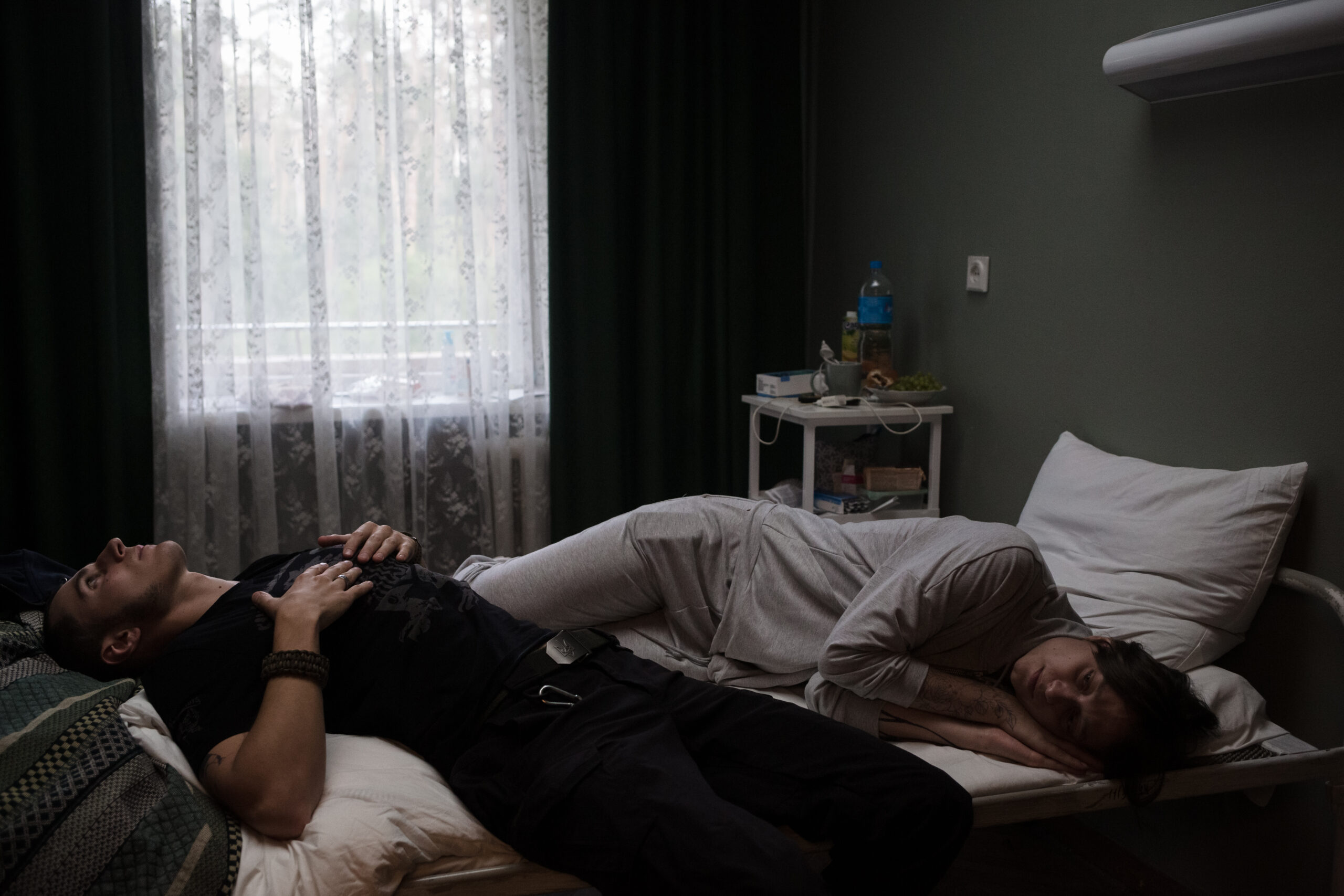
— The information flow now consists almost entirely of news about the war, but because of the filming of films on this subject, you have spent so much time in this information field as well. How do you keep yourself in the resource?
— It was easier to get distracted before the full-scale invasion began. After the post-production of «Butterfly Vision», I realized that no matter how much distance you keep and realize, if you are involved in the material every day, you still affect each other. So I started therapy not with drugs yet, although I don’t think that’s why there should be any prejudice. I was going off a little bit. Maybe my leisure time would be more moderate if I didn’t work with such super-sensitive topics in my work.
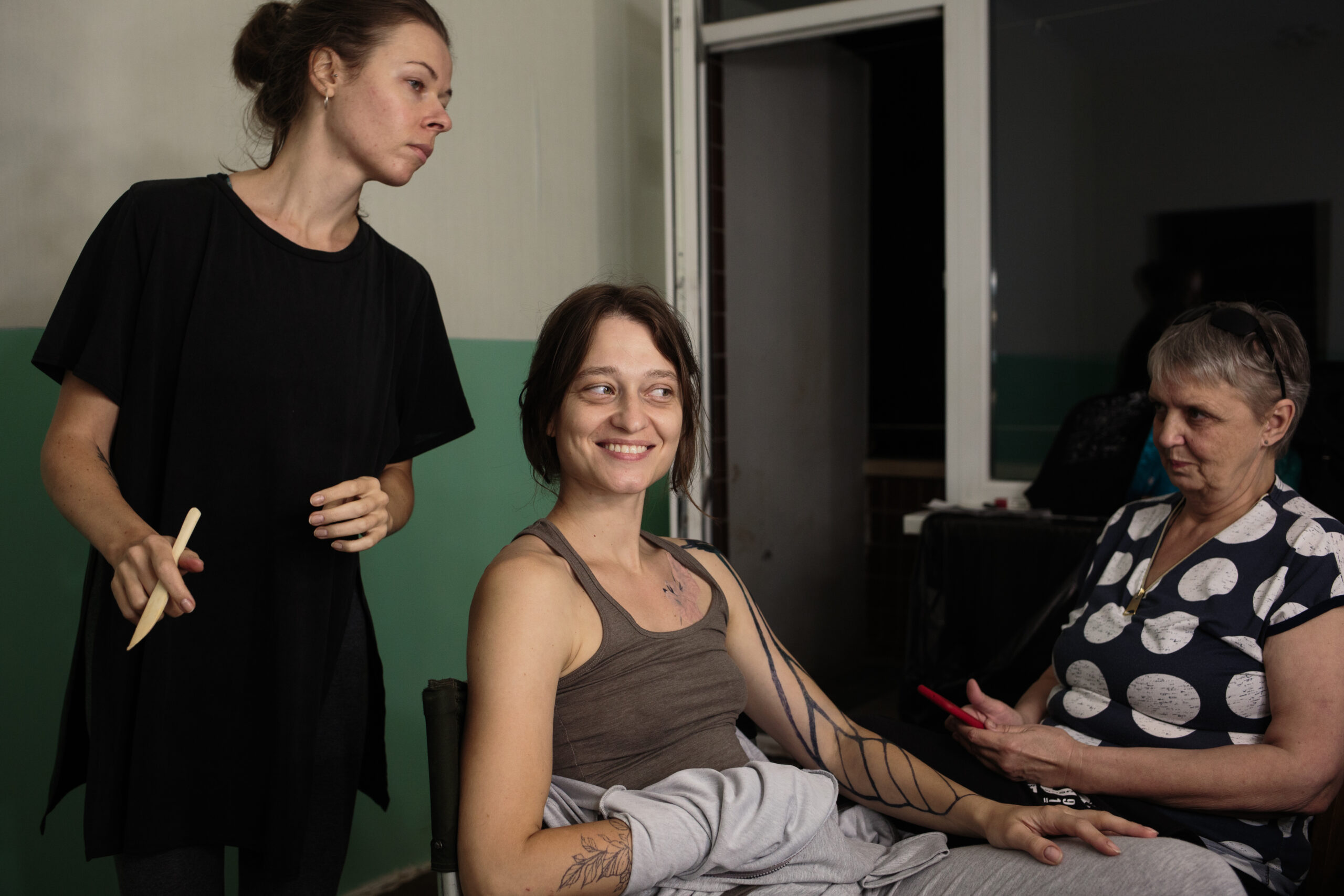
— Do you have ideas for your next projects?
— I wrote an application to the UCF for funding to develop the script for my next film the night before the full-scale invasion began. I promised myself that the next film after «Butterfly Vision» should be a comedy. It is closely related to world and Ukrainian realities, so it will change after the war. Now everything is in stand-by mode, and we shoot a lot of documentary material which will be turned into cinema in one way or another. Accordingly, I have some plans.
Also Read our interview with Valentyn Vasynovych
